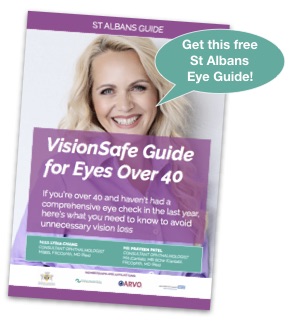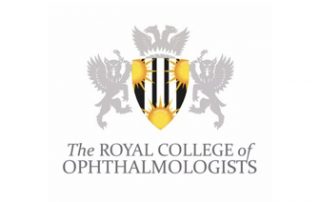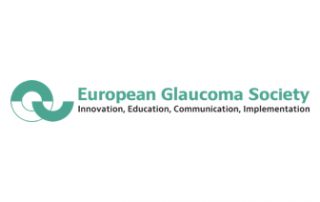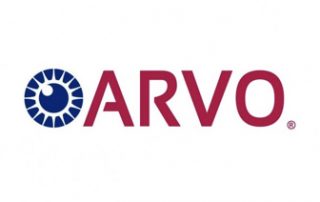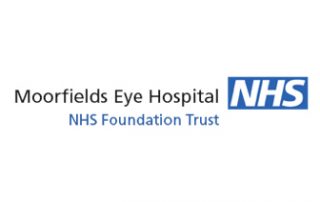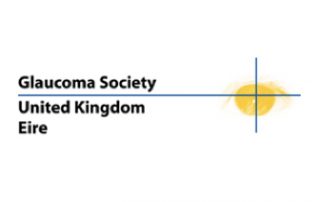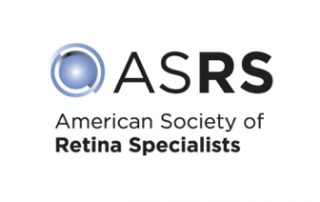Are you over 40 and haven’t had a comprehensive eye check done in the last year? A VisionSafe Eye Check can spot signs of diabetic retinopathy so you can get treatment fast.
Diabetic retinopathy treatment overview
The aim of treatments for diabetic retinopathy is to reduce the risk of vision loss and to identify risk factors that could be linked to vision loss. If we recommend treatment, the options might include:
- Medical diabetic retinopathy treatments
- Laser diabetic retinopathy treatments
- Surgical diabetic retinopathy treatments
How does diabetic retinopathy treatment help you?
Treatments for diabetic retinopathy aim to stop or slow down as much as possible the potential for future vision loss. However, in some cases, treatments for diabetic retinopathy are unable to completely restore normal vision due to changes at the level of light-detecting cells in the retina. If treatment is recommended, the options might include:
- Medical treatments
- Laser treatments
- Injection treatments
How do you know that diabetic retinopathy treatment is the right solution?
The type of treatment we recommend will depend on whether you have potentially sight-threatening diabetic retinopathy, the type of diabetic retinopathy you have and the severity of changes in the retina.
Also, it is sometimes important to measure how quickly your diabetic retinopathy is changing since some patients deteriorate quickly & some patients deteriorate slowly. This is called the rate of deterioration (or change).
Assessing your diabetic retinopathy with regular testing will allow Mr Patel to measure this and therefore determine the best management plan for you.
Our Patients Say…

“Extremely personable and reassuring. Knowledgeable. Explained options.Successful treatment so far.”

“Most attentive and sympathetic to a patient as well as explaining carefully any procedures.”

“Brilliant! Highly recommend.”

“Very professional yet personal and friendly. Calm & reassuring environment and personal at all levels.”

“Dr Patel explained everything clearly and carefully. No feeling of rush or push to have more procedures. Very friendly & charming reception throughout the clinic.”

“Thank you to Dr P for recommending me. I travelled from Kent and it was an extremely thorough consultation.”

“Everything well explained – great care & understanding. Would thoroughly recommend.”

“I was dealt with very professionally with great care to detail and treated with great kindness. Thank you.”

“I am impressed! You are very thorough.”

“Fuss-free and efficient. Friendly and reassuring.”

“This is an extremely well-run clinic and the staff are kind, understanding and efficient.”

“Very thorough examination & informative discussion.”
How does diabetic retinopathy treatment work?
There are three types of diabetic retinopathy treatments.
Medical diabetic retinopathy treatments
If high levels of blood sugar, cholesterol or high blood pressure are contributing to your eye disease, Mr Patel will want to work with your diabetes doctor to help reduce risk factors which may be contributing to the diabetic retinopathy.
Laser diabetic retinopathy treatments
There are two main types of laser treatments for diabetic retinopathy:
Pan-retinal photocoagulation laser (PRP) treatment
We use pan-retinal photocoagulation laser treatment to treat proliferative diabetic retinopathy (PDR). PDR is an advanced form of diabetic retinopathy in which fragile, abnormal blood vessels grow on the surface of the retina which is at high risk of bleeding into the retina and the gel-like fluid of the eye (the vitreous). Though PDR itself does not necessarily cause symptoms, when bleeding occurs as a result of PDR, the vision is affected leading to vision loss. PRP laser treatment produces small hot spots on the retina leading to small laser burns. Usually, 2-3 sessions of treatment are needed to complete the treatment.
If successful, PRP laser treatment is associated with shrinkage of the abnormal blood vessels reducing the risk of vision loss through bleeding into the retina and the vitreous. Sometimes further PRP laser treatment is needed to help control the condition and further reduce the risk of vision loss. Occasionally the process of shrinkage of abnormal blood vessels after laser treatment can trigger a small amount of bleeding into the vitreous leading to a blurring of vision which usually settles over 2-3 months. However, the risk of vision loss from no treatment is much higher than with PRP laser treatment.
Macular laser treatment
The second type of laser treatment is called macular laser treatment and this is a milder form of laser treatment used to treat diabetic macular oedema (when the blood vessels in and around the centre of the retina start leaking or bleeding). The aim of macular laser treatment is to reduce the amount of fluid causing the central retina to swell or thicken to help stabilise the vision. Note that the past few years have seen eye injections overtake laser based treatments as the most effective treatment for diabetes related retinal blood vessel leakage however these still remains a role for laser treatment in certain circumstances.
Injection diabetic retinopathy treatments
Injection diabetic retinopathy treatments involve the injection of a highly specialised and targeted medicine into the gel-like fluid of the eye (the vitreous). The drug works by blocking the protein responsible for the growth of fragile blood vessels. This protein is called vascular endothelial growth factor (VEGF), and the medicines used are called anti-VEGF agents.
Different types of anti-VEGF agents are available, and Mr Patel can discuss the best treatment for you during the consultation. Studies have shown that repeated and regular anti-VEGF injections are effective in preventing blindness and can stabilise vision in patients with proliferative diabetic retinopathy.
Injection treatments don’t work if you are unable to have regular injections or if you fail to attend for regular follow-up consultations. The interval between anti-VEGF injections and the length of time you will need treatment for will depend on the severity of the condition and how you respond to the treatment.
Latest news from your eye doctor in St Albans
We regularly share new videos and blog posts for our St Albans patients about common eye questions and concerns. You can subscribe at the bottom of this page to receive the latest updates.
Vision loss after 40: A VisionSafe Eye Check might catch signs of AMD, glaucoma, macular or retinal conditions.
Vision loss after the age of 40 is common, and there are several reasons this happens. One of the most prevalent reasons is an age-related change in our focusing which means we are not able to read small print easily without glasses (also known as presbyopia). However, there are more serious eye conditions which can lead to irreversible vision loss if not detected at an early stage.
What is macular degeneration?
AMD is a condition which affects the retina, the light-sensitive membrane at the back of the eye. As we get older, we develop an accumulation of waste material underneath the retina. This accumulation can affect the function of the light-sensitive cells.
What is glaucoma treatment and how does glaucoma treatment work?
There are different types of glaucoma treatments. The mainstay of glaucoma treatments is to reduce intraocular (eye) pressure to slow down or stop the disease from worsening.
Memberships and affiliations
Our Consultant Ophthalmologists love to stay on top of the latest in eye treatment options for patients through regular industry meetings, journals and research.
Request a Call Back
Whether you’d like to book a VisionSafe Eye Check, or discover your eye treatment options, give us a call on: 01727 227 013 or request a call back below:


